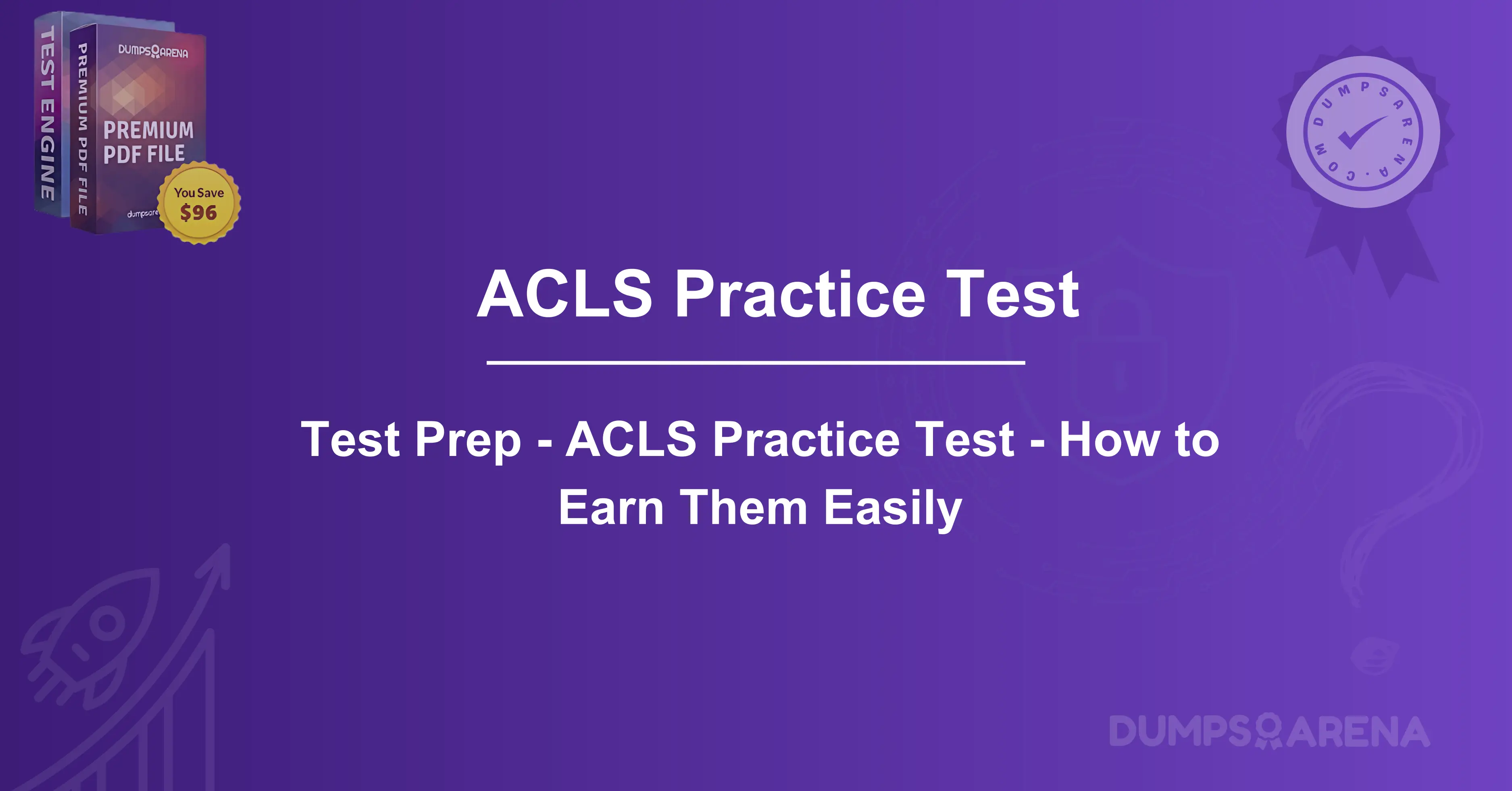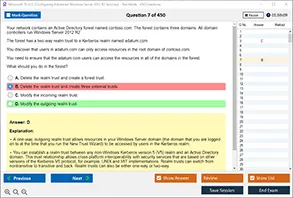Brief Overview of ACLS (Advanced Cardiovascular Life Support)
Advanced Cardiovascular Life Support (ACLS) is a set of clinical interventions and protocols designed to treat life-threatening cardiovascular emergencies, including cardiac arrest, stroke, and acute coronary syndromes. Developed by the American Heart Association (AHA), ACLS builds upon Basic Life Support (BLS) skills but introduces advanced techniques such as:
· Advanced airway management
· Intravenous (IV) medication administration
· Electrocardiogram (ECG) interpretation
· Defibrillation and synchronized cardioversion
Healthcare professionals—such as doctors, nurses, paramedics, and emergency responders—must obtain ACLS certification to demonstrate their ability to handle critical cardiac situations. Given the high-stakes nature of ACLS, thorough preparation is essential, and one of the most effective ways to prepare is by taking ACLS practice tests.
What to Expect in an ACLS Practice Test
ACLS practice tests simulate the actual certification exam, helping candidates familiarize themselves with the format, question types, and time constraints. A well-structured ACLS practice test typically includes:
Multiple-Choice Questions (MCQs)
· Covers core ACLS algorithms (e.g., cardiac arrest, bradycardia, tachycardia)
· Tests knowledge of drug dosages (e.g., epinephrine, amiodarone, adenosine)
· Assesses ECG interpretation skills
Scenario-Based Questions
· Presents real-life emergency situations
· Requires selecting the correct sequence of interventions
· Evaluates decision-making under pressure
Megacode Simulations
· Interactive case studies mimicking actual resuscitation scenarios
· Tests teamwork and communication skills (essential for ACLS)
Time Constraints
· Mimics the real exam’s time pressure
· Helps improve speed and accuracy
By taking practice tests, candidates can identify weak areas and focus their study efforts accordingly.
Benefits of Taking ACLS Practice Tests
Reinforces Learning and Retention
· Repeated exposure to ACLS algorithms strengthens memory recall.
· Active recall (retrieving information during a test) enhances long-term retention.
Builds Confidence
· Familiarity with exam structure reduces test anxiety.
· Practicing under timed conditions improves performance.
Identifies Knowledge Gaps
· Highlights areas needing further review (e.g., pharmacology, ECG rhythms).
· Allows targeted studying instead of passive reading.
Improves Test-Taking Strategies
· Teaches time management for the real exam.
· Helps recognize common question patterns and distractors.
Simulates Real-World Application
· Scenario-based questions prepare candidates for actual emergencies.
· Enhances critical thinking and clinical judgment.
Detailed Explanations: Why They Matter
Not all practice tests are created equal. The best ACLS practice tests provide detailed explanations for each answer, helping learners understand:
· Why the correct answer is right (e.g., correct drug dosage, proper rhythm interpretation)
· Why incorrect options are wrong (e.g., common mistakes in ACLS algorithms)
· Clinical reasoning behind interventions (e.g., when to shock vs. administer medications)
DumpsArena ACLS practice tests stand out because they offer:
Comprehensive rationales for every question
References to AHA guidelines (latest 2023 updates)
Visual aids (ECG strips, algorithm flowcharts)
This level of detail ensures that candidates don’t just memorize answers but truly grasp ACLS principles.
How to Use ACLS Practice Tests Effectively
To maximize the benefits of practice tests, follow these strategies:
Take a Baseline Test First
· Assess your current knowledge before studying.
· Identify strengths and weaknesses.
Review Mistakes Thoroughly
· Don’t just note incorrect answers—understand why you got them wrong.
· Revisit relevant ACLS algorithms and guidelines.
Simulate Exam Conditions
· Time yourself strictly (mimicking the real test).
· Avoid distractions to build focus.
Repeat Tests Regularly
· Spaced repetition improves retention.
· Track progress to ensure improvement.
Combine with Other Study Methods
· Use DumpsArena ACLS study guides alongside practice tests.
· Watch ACLS megacode videos for visual learning.
Additional Resources for ACLS Preparation
While practice tests are crucial, supplementing them with other resources ensures comprehensive preparation:
Official AHA ACLS Manual
· The gold standard for ACLS content.
· Updated with the latest 2023 guidelines.
Online ACLS Courses
· Interactive modules with video demonstrations.
· Often include practice tests and megacode simulations.
Flashcards
· Quick review of key drugs, rhythms, and algorithms.
· DumpsArena ACLS flashcards are optimized for memorization.
Study Groups & Forums
· Discuss tricky concepts with peers.
· Learn from others’ experiences.
Hands-On Practice
· Participate in mock codes.
· Use ACLS manikins for realistic training.
Conclusion: Why DumpsArena is the Best Choice for ACLS Practice Tests
Preparing for the ACLS Exam requires more than just reading—it demands active practice and repetition. DumpsArena ACLS practice tests provide:
Realistic exam simulations with detailed explanations
Up-to-date AHA guidelines (2023 compliant)
Comprehensive question banks covering all ACLS algorithms
Performance tracking to monitor progress
By integrating DumpsArena practice tests into your study plan, you’ll not only pass the ACLS exam but also gain the confidence to perform in real-life emergencies.
Start practicing today and ace your ACLS certification with DumpsArena!
Get Accurate & Authentic 500+ACLS Practice Test
1. What is Looker primarily used for?
A) Data visualization
B) Business intelligence and data analytics
C) Database management
D) Cloud storage
2. Which language does Looker use to define data models?
A) SQL
B) LookML
C) Python
D) R
3. What is a "Explore" in Looker?
A) A saved dashboard
B) A predefined data model for analysis
C) A type of visualization
D) A data export tool
4. Which Looker feature allows users to save and share queries?
A) Dashboards
B) Looks
C) Explores
D) Models
5. True or False: Looker requires writing raw SQL for every query.
A) True
B) False
6. What is the purpose of a "derived table" in Looker?
A) To create a new table from an existing query
B) To delete old data
C) To export data to CSV
D) To schedule reports
7. Which of these is NOT a Looker visualization type?
A) Bar chart
B) Scatter plot
C) Pie chart
D) 3D hologram
8. How does Looker ensure data governance?
A) By allowing row-level security
B) By restricting all data access
C) By only using sample datasets
D) By disabling exports
9. What is the main benefit of Looker Blocks?
A) Pre-built data models and dashboards
B) Custom SQL generation
C) Automated machine learning
D) Data encryption
10. Which Looker pricing model is based on user licenses?
A) Pay-per-query
B) Subscription-based
C) Freemium
D) One-time purchase



